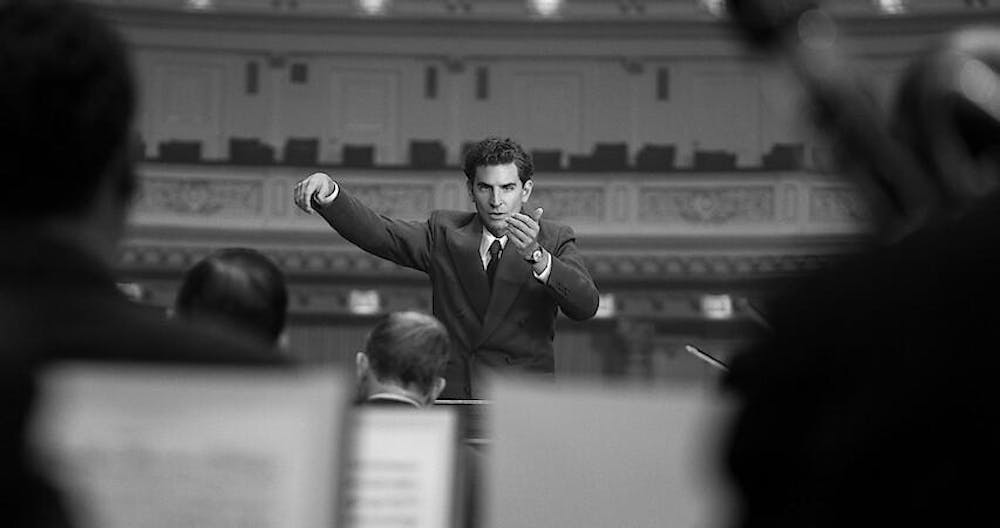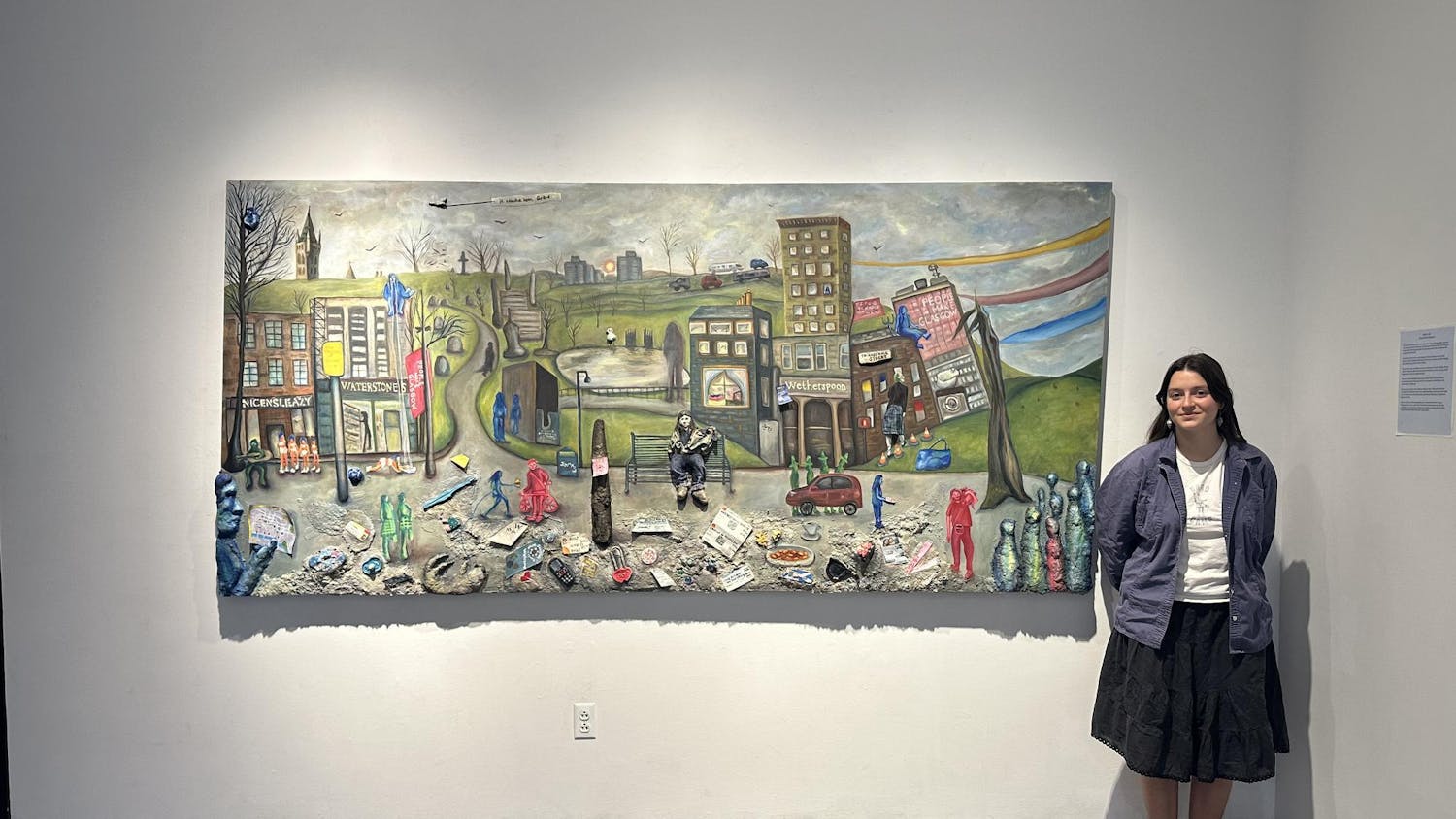Biopics are typically restrained by the genreÔÇÖs nature: there has to be some accordance maintained with real life. Sometimes, this results in films that appear to lack aesthetic depth ÔÇö focused only on narrating the life of the person at hand ÔÇö or films that drag, if the person chosen ends up failing to capture the audienceÔÇÖs interest. Bradley CooperÔÇÖs ÔÇťMaestro,ÔÇŁ by contrast, has shed an unbelievably artistic light on the lives of American conductor and composer Leonard Bernstein (Bradley Cooper) and his wife Felicia Montealegre (Carey Mulligan), creating a beautiful portrait of a tragic marriage that feels real (because it is).
ÔÇťMaestroÔÇŁ opens with Leonard filming an interview, but the film quickly zooms back to a much younger version of him first meeting his future wife at a party. Within roughly the first 30 minutes of the movie, the two immediately fall in love, wed and have children, but the honeymoon period ends shortly thereafter. As Leonard gets busier with his work, and Felicia begins to forsake her own career, their marriage begins to crack. He becomes depressed, deeply lonely and neglectful of his family, constantly consumed by the effort of trying to balance his inner artistic life as a composer with his outer performative one as a conductor. He seeks solace in extramarital affairs with absolutely no regard for how his actions impact Felicia.
Tensions in Leonard and FeliciaÔÇÖs relationship reach their climax on a family vacation. Leonard has brought his friend Tommy (Gideon Glick) along ÔÇö coming up with some nonsense excuse that heÔÇÖs a potential suitor for his daughter Jamie (Maya Hawke) ÔÇö and Felicia decides that sheÔÇÖs had enough. When he announces to the family that he has just finished composing a big piece, Felicia walks swiftly out of the summer house and jumps into the pool. The two soon have a fight on Thanksgiving which leads to a temporary separation. Both, however, find that they are even unhappier without each other. They reunite during the most impressive conducting scene in the entire film, but this celebratory moment is soon overshadowed: Felicia is diagnosed with breast cancer. Yet, in some way, this grief is the filmÔÇÖs version of a happy ending, for it is only through FeliciaÔÇÖs illness and death that the Bernstein family finally seems to come back together.
As a biopic, ÔÇťMaestroÔÇŁ captures not only Leonard Bernstein himself but also the time in which he lived. Bradley Cooper clearly took the time to study LeonardÔÇÖs conducting style, theatrical movements and enraptured expression. The film shifts from black and white to color, features a huge cinematic score and uses different aspect ratios to capture the spirit of both old and new Hollywood.
The cinematography is perhaps the filmÔÇÖs greatest strength. From an early scene shot against a windowÔÇÖs shadow to Felicia watching her husband conduct, every moment has been carefully angled, staged and lighted. The result is a film that continually keeps audience members invested in both the emotional pull of Leonard and FeliciaÔÇÖs relationship and the superbly aesthetic experience of watching it unfold.
Perhaps the most tragic part of ÔÇťMaestroÔÇŁ is not BernsteinÔÇÖs marriage but the fact that Leonard, even after years of depression, family issues and the death of his wife, does not necessarily change. His habits remain consistent as the film closes out ÔÇö he still appears to be the same troubled artist who suffers internally yet canÔÇÖt bear to be alone. Although his life was lived far from the level of perfection he sought to achieve in his music, it did make for a masterful film. Full of subtlety and artistry, ÔÇťMaestroÔÇŁ asks viewers to remain attentive to its aesthetic choices in order to be moved.

Rya is an arts & culture section editor from Albany, NY. She is a junior studying English and Literary Arts, and her favorite TV show is Breaking Bad.




